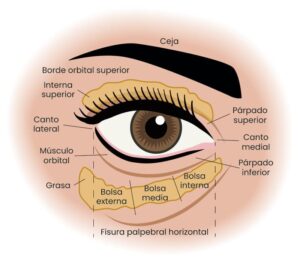Are you struggling with the question of whether plastic surgery will really benefit you or lead to unforeseen consequences?
The lure of transformation can be powerful, but the decision to change your appearance should not be taken lightly.
When weighing up the possible advantages and risks, it is essential to consider the emotional impact alongside the physical changes.
The plastic surgery journey is complex, full of nuances and personal considerations that go beyond mere aesthetics.
Before you take the leap, reflect on the profound implications and ethical dimensions that accompany reshaping your identity through surgery.
Main points
- Plastic surgery can positively transform self-esteem and quality of life.
- Potential risks and complications should be carefully considered before undergoing surgery.
- Emotional well-being, relationships and personal values play crucial roles in decision-making.
- Seeking advice, support and mental preparation are essential steps before plastic surgery.
Benefits of Plastic Surgery
Discover how plastic surgery can transform not only your physical appearance, but also your self-esteem and overall quality of life. Through plastic surgery, individuals experience greater self-confidence, improved appearance and a positive body image, leading to increased self-esteem.
The emotional well-being that comes from feeling more comfortable with your appearance can have profound effects on your daily life and interactions with others. Embracing the positive changes in your appearance can enable you to face the world with a new confidence and sense of self-belief.
Disadvantages and risks
When considering plastic surgery, it is crucial to be aware of the potential inconveniences and risks that come with the decision to undergo a procedure. Complications and side effects can arise, such as infections, scarring and adverse reactions to anesthesia. Long-term consequences can include dissatisfaction with the results, additional surgery or changes in sensation.
The psychological impact should not be underestimated, as body image issues and unrealistic expectations can lead to mental health problems. The recovery process can be challenging, requiring time off work and limitations in daily activities.
Ethical considerations such as consent, patient autonomy and society’s standards of beauty also play a significant role in the decision-making process. Make sure you weigh up these factors carefully before proceeding with plastic surgery.
Types and purposes
When understanding the field of plastic surgery, it is vital to understand the different types and purposes that lead individuals to these transformative procedures. Ethical dilemmas often arise when considering cosmetic improvements, influenced by cultural standards and social expectations.
The psychological impact of plastic surgery is significant, affecting self-perception and mental well-being. Social norms play a role in shaping individuals’ desires for physical changes, sometimes leading to elective procedures.
In addition, medical advances continually redefine the limits of what is possible in plastic surgery, offering innovative solutions for aesthetic and reconstructive purposes. It is essential to navigate these factors carefully in order to make informed decisions about plastic surgery, considering not only the physical transformation, but also the ethical, cultural, psychological and social implications.
Factors to consider
Considering the complex range of factors involved in decisions about plastic surgery, it becomes crucial to thoroughly assess the impact on various aspects of your life before proceeding with any procedure. When contemplating plastic surgery, the emotional implications, the impact on relationships, aligning values, seeking counseling and overcoming fears are key considerations. Here is a table to help you navigate these factors:
| Emotional Implications | Impact on Relationships | Alignment of Values |
|---|---|---|
| Recognize feelings and fears | Reflect on the impact on loved ones | Ensure that decisions are in line with your personal values |
| Address underlying concerns | Consider the effects on partners | Evaluate the choices against your core beliefs |
| Recognize emotional responses | Think about the implications for friends | Think about long-term achievement |
Reflecting on these factors can guide you towards a decision that is aligned with your emotional well-being, relationships, values and personal growth.
Seeking Help and Preparation
If you’re feeling overwhelmed or uncertain about seeking help and preparing for plastic surgery, remember that asking for help is a brave and positive step towards achieving your goals.
It is crucial to have emotional support during this period. Find a trusted confidant, someone who listens without judgment and can understand your feelings.
Effective communication strategies are key; prepare for conversations by thinking about what you need and expressing it clearly. Seeking guidance from family, friends or professionals can provide the necessary mental preparation.
Frequently Asked Questions
- Are there any age restrictions for plastic surgery? When considering plastic surgery, age restrictions vary. Psychological effects, parental consent, cultural norms, health risks and financial implications are crucial factors. Seek advice from professionals, assess readiness and understand all aspects before proceeding.
- How Long Do Plastic Surgery Results Last? When considering plastic surgery, it’s important to understand that the results generally last for many years, depending on the procedure. The recovery process, potential risks, cost implications, psychological impact and maintenance tips all play vital roles in sustaining results.
- Can Plastic Surgery Help with Chronic Pain or Medical Conditions? When dealing with chronic pain or medical conditions, plastic surgery can offer relief by addressing underlying problems. It can help with pain management, provide medical benefits, impact recovery, influence mental health and carry potential risk factors.
- Are there alternative treatments or procedures that can achieve similar results to plastic surgery? When considering alternatives to plastic surgery, explore natural remedies, non-invasive treatments, holistic approaches, home remedies and lifestyle changes. These options can sometimes offer similar results without the risks and costs associated with surgical procedures.
- How Can Individuals Maintain the Results of Their Plastic Surgery in the Long Term? To maintain the results of your plastic surgery in the long term, prioritize consistent skin care routines and exercise regimes. Support your results with a healthy diet and non-invasive treatments. Stay committed to follow-up appointments, make lifestyle changes, protect your skin from the sun, manage stress and stay hydrated. Avoid weight fluctuations.






